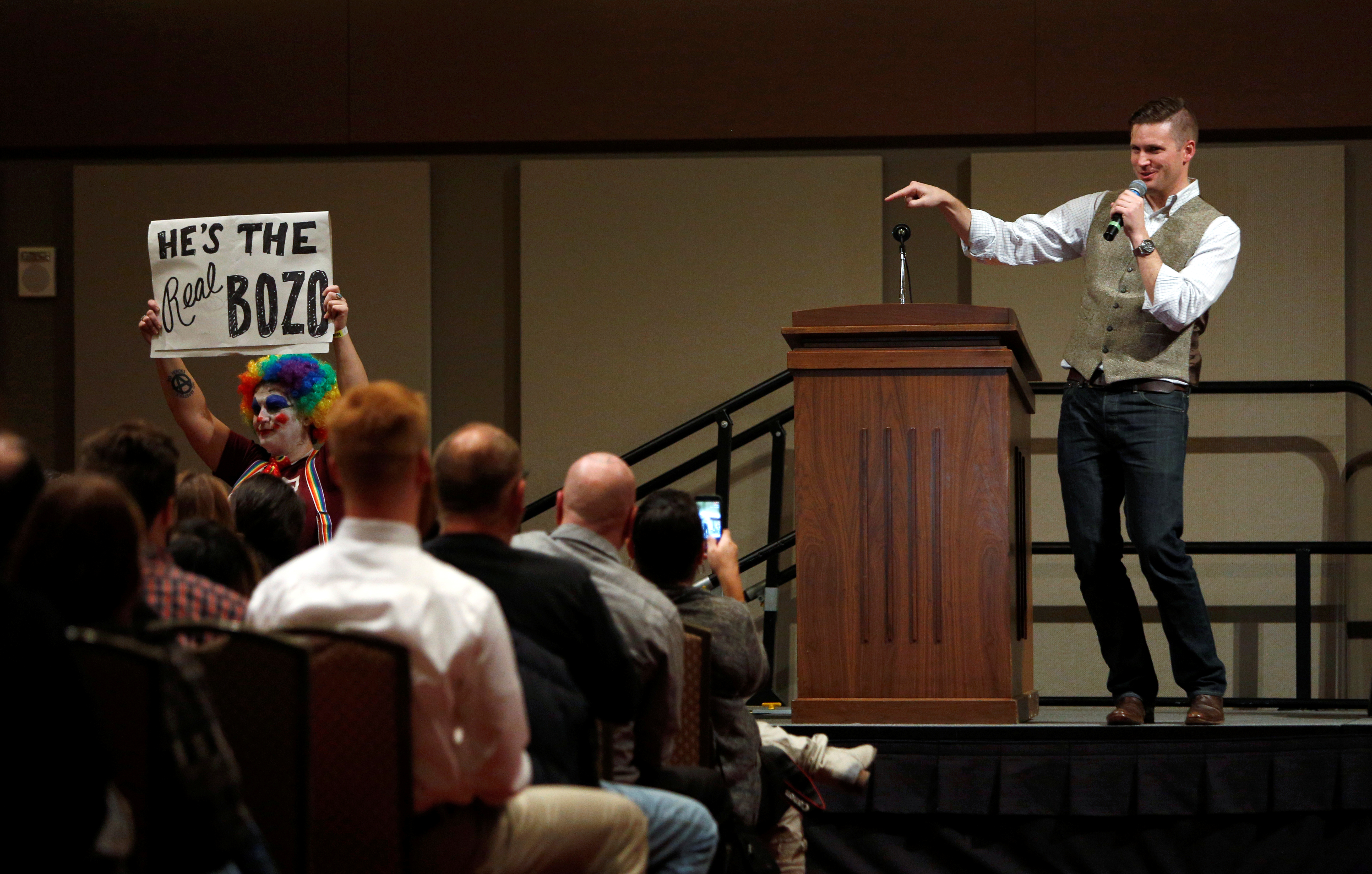Defend free speech — even when it offends you
That is the only way for the First Amendment to truly mean anything


A free daily email with the biggest news stories of the day – and the best features from TheWeek.com
You are now subscribed
Your newsletter sign-up was successful
Being a principled defender of free speech is never easy. And today's assaults on the right to the unencumbered exchange of ideas make the mission particularly grueling.
In both the past and present, a sizable portion of the political right has insisted that the First Amendment shouldn't be used as a shield for things like flag burning, protests against police brutality, and pornography. Similarly, many on the left insist the Constitution doesn't protect things like amorphously defined "hate speech," paid political advocacy, and … pornography.
Now, the culture on many college campuses — sometimes encouraged by professors — deems violent shutdowns of controversial speakers to be a form of free speech. But this only works under the logic that the loudest voice is the victor in the competition of ideas.
The Week
Escape your echo chamber. Get the facts behind the news, plus analysis from multiple perspectives.

Sign up for The Week's Free Newsletters
From our morning news briefing to a weekly Good News Newsletter, get the best of The Week delivered directly to your inbox.
From our morning news briefing to a weekly Good News Newsletter, get the best of The Week delivered directly to your inbox.
That mob rule should be embraced by those claiming to represent the most vulnerable voices is disconcerting, and fails on a basic level to understand how the protection of unpopular, controversial, and subjectively offensive speech is the same protection that allows marginalized groups to fight against the tyranny of both government and the social majority.
The idea that the First Amendment only protects from the incursion on free expression by the government is held by many, but it is wrong. Protest is free speech, but there is a line where it becomes an unconstitutional violation of another person's right to free expression.
That's why the recent policy imposed by the Board of Regents at the University of Wisconsin to confront the "heckler's veto" creates such a conundrum. Ostensibly an affirmation of UW's "commitment to academic freedom and freedom of expression, and expectations for those who violate these freedoms," the policy creates new sanctions for students who cross the line from dissent to abridging others' ability to express themselves.
The Foundation for Individual Rights in Education (FIRE) — a nonpartisan free speech legal advocacy group that defends expression across the political spectrum — describes UW's new policy as having both "problems and promise." FIRE's legislative and policy director Joe Cohn tells The Week, "I believe they're acting in good faith to try to address the situations that have been unfolding where people have shut down other people's events and shut down other people's speech."
A free daily email with the biggest news stories of the day – and the best features from TheWeek.com
But the devil — as always when it comes to policy — lies in the details, such as the imposition of mandatory minimum punishments that "don't allow for fact finders to take into account aggravating and mitigating circumstances and people's individual degree of culpability," Cohn says. Another concern with the UW policy is the creation of a system where a second complaint against a student automatically triggers a formal university investigation. In a statement, FIRE writes, "Without having a mechanism to decline to investigate frivolous complaints, this provision invites abuse. Students will now have the ability to trigger investigations into their political adversaries simply by lodging multiple complaints."
More fervent critics of UW's new policy include Suzanne Nossel, PEN America's executive director, who tells Newsweek that she believes the policy's language — which lumps both violence and "disorderly conduct" under the same prohibitions — might discourage students from believing they have the right to protest at all.
“Who’s going to show up to a protest if they think they could be potentially expelled?” asked Democratic state Rep. Chris Taylor, as quoted by the Associated Press.
With 16 of the 18 members of UW's Board of Regents being appointed by Gov. Scott Walker (R), and with UW's new policy being essentially a companion of a bill passed this summer by Wisconsin's Republican-controlled House, there is legitimate concern that the broad language in the policy could be abused for political ends.
Expressing cautious optimism, Cohn believes UW's policy will allow for robust forms of protest, while curbing the most egregious disruptions.
"In a free society, anyone should be allowed to walk out on a speech, anyone should be able to hold signs outside of events, anyone should be able to chant outdoors, anyone should be able to briefly heckle. Those types of activities don't prevent others from exercising their free speech rights, those add voices to it. But Cohn adds, "Drowning out others is not in the same category and the courts have recognized the difference."
Until the policy is applied in action, both concern and support of the bill's consequences is purely speculative. However, legislative solutions — even the most well-intentioned — often exacerbate the crises they were conceived to resolve. And trusting faceless bureaucrats to be the arbiters of protected speech when they are armed with both vague policy language and punitive cudgels like mandatory minimums could very well turn legitimate protest into an expellable offense.
A recently previewed poll by the Cato Institute and YouGov shows how just how confused American views on free speech truly are.
Though Democrats' support for legislative prohibitions on "hate speech" is well-documented, Republicans — who in recent history are more likely to cloak themselves as hardcore "free speech" warriors — overwhelmingly believe flag-burning should be criminalized, with a majority answering that such an offense should be grounds for having one's citizenship stripped. A majority of Republicans also believe in curtailing Muslims' freedom of religious expression, and would be more inclined to fire a football player kneeling during the national anthem than a business executive who expresses a belief that African Americans possess inferior genetics.
As a long suffering defender of the free speech rights of voices on both the left and right who would happily deprive me of some of my rights if given the chance, I fully accept that hot-button issues frequently convince people that this one time is the only time they'd consider chiseling away at the First Amendment (really, they swear). But it's never just one time, and unless the line of protecting the grand messiness of debate, dissent, protest, and the ability to say the unsayable is held against the forces of both the government and the mob, eventually the First Amendment itself becomes a mere pile of dead letters.
Anthony L. Fisher is a journalist and filmmaker in New York with work also appearing at Vox, The Daily Beast, Reason, New York Daily News, Huffington Post, Newsweek, CNN, Fox News Channel, Sundance Channel, and Comedy Central. He also wrote and directed the feature film Sidewalk Traffic, available on major VOD platforms.
